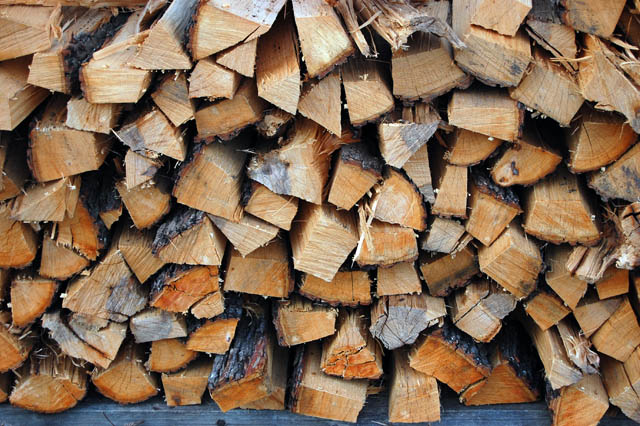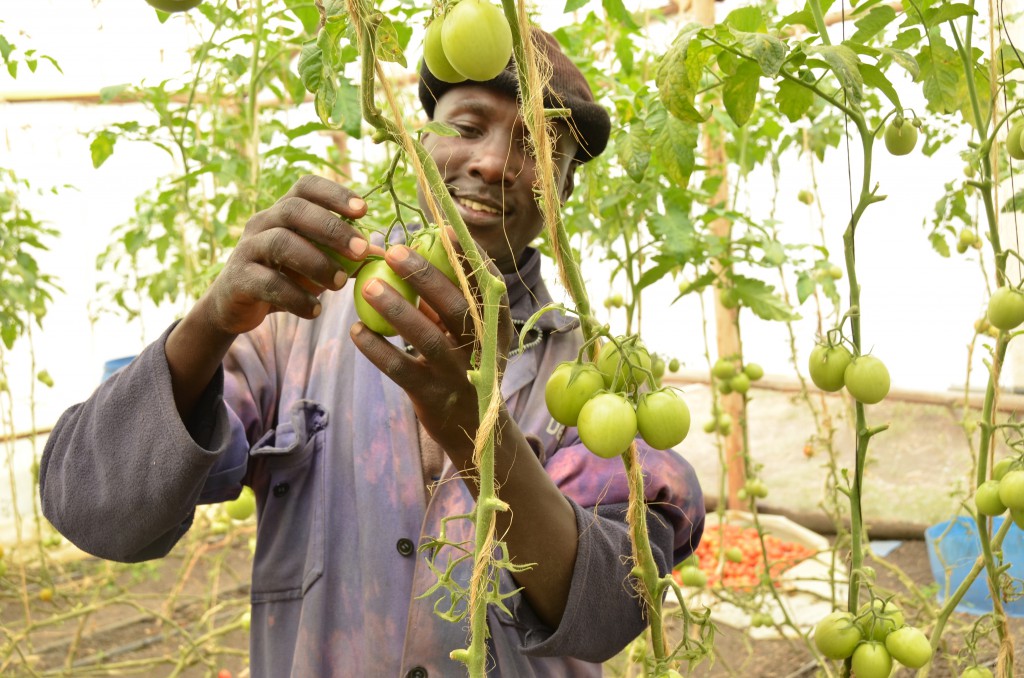Rural Small Business Ideas in Kenya – Jomo Kenyatta, Kenya’s Founding Father, was known for his insistence that people should go back to the farms and start self-sustaining ventures rather than clog up the city streets begging for jobs and assistance.
True to Mzee’s words, those who embraced this idea eventually built big empires for themselves and today they control some of the country’s largest business chains. Majority of those who ignored this wisdom continued to fight for space in an already congested city only to settle down in informal settlements and continue to raise yet another generation of dependents.
In this article, we echo the wisdom of our founding fathers – that there are many rural business ideas available out there in small towns and rural areas yet to be exploited. And while the decision to recoil in one of the sleepy corners of the republic may not sound like a good one today, it might easily be the beginning of your BIG BREAK.
10 Small Business Ideas for People in Rural Towns and Villages
1.Firewood Delivery Business

Image Courtesy: BBQ
Firewood is a commodity in plentiful supply in the forested parts of the country. On the other hand, this same commodity is in short supply in open areas where farms, schools and upcoming trading centers compete for the little available space. There-in lies a potential business venture that doesn’t require a lot of capital to set-up. In order to succeed in this business you need to:
1)Find a reliable source of mature wood
2)Ensure that this source of wood complies with the national environmental standards (You can source from your farm, neighboring farms or from a neighboring forest whose crop of trees was recently harvested and re-forestation is yet to take place. Just make sure you have clearance from your area forest officer before you venture into the forest).
3)Buy a panga and axe and do the hard work of cutting the wood
4)You also need to organize for transport from point A (source) to point Z (market)
Preparing the wood and transporting it to the market will cost you about Ksh10 per piece of wood. You can then sell each piece at Ksh20 especially in places around Kiambu and Mombasa Counties and therefore make double profit.
2.Gathering and Sale of Scrap Metal
Gathering and selling used scrap metals, containers, scrap jewelry and equipment etc for the purpose of recycling is one of the most lucrative small business ideas for the Kenyan rural folk. This is because villagers tend to believe that there is no value left in some of these items and you can easily find them lying all about. If you can gather a substantial amount, these materials can be exchanged for a decent amount of cash. You will require:
1)Knowledge of where to sell them. Look for recycling plants operating in big towns nearby and get a rough idea of what they need.
2)Find time to move around the villages and estates collecting scrap metals and used glass bottles
3)You can set aside a small budget to pay those who will demand for compensation in exchange for their scrap metal
4)You may also want to invest in a few business cards so people with scrap metal supplies can reach you whenever they have new stock
5)A weighing scale and large collection bags will also come in handy
By doing this business, you’ll not only be enriching yourself but improving the environment as well.
3.Marketing Agric Produce Even Without Farming
If you don’t like the idea of going farming what about marketing produce from the farmers and doing the work of delivery yourself to the market? You can for instance go to a rural farm in Kisii, order for as many bananas as possible and deliver them at a cost to a buyer in Nairobi.
Or you can even travel all the way to Kieni in Nyeri county, buy onions at Ksh20 per kilo and deliver them to a hotel in Mombasa at Ksh40 per kilo.
What do you need to start?
1)Good marketing and networking skills so that you can access high-end customers who are willing to pay well for your deliveries
2)Knowledge on good and cost-effective means of transport
3)Starting capital to enable you buy from farmers and deliver to the buyers in good time (Starting capital may vary from as low as Ksh100,000 for small groceries to as high as several millions for bulk supplies).
4.Be the Transport Hero in Your Area
Does your rural area have a problem with transport? I am sure 99% of you will answer yes to this question. Now, since you’ve already spotted a problem, why not create a solution for it. You can start small with a motor-bike which aside from carrying passengers can be used as a courier service especially by farmers who want to move their produce from the farms to the market centers.
If you have some more capital then an old pick-up or Probox van would be a better investment. Or you can even inject a bit more capital to bring a tractor which as we know has many roles to play in the livelihood of the rural folk. Requirements:
1)Starting capital (Ksh100,000 for motorbike, Ksh500,000 for second hand pickup or Probox)
2)Good relations with the rural folk
3)A reliable source of fuel and mechanical support
5.Engage In Organic Farming; Stand Out From The Pack

Image Courtesy: Green Media
Look, most farmers today are engaging in inorganic farming. They use tonnes of fertilizer, pesticides and even hormones to deliver the best looking products at the cheapest possible prices. However, as we all know, inorganic food is not good for the human body.
If you think something needs to be done to change the way modern people eat, then why not start an organic farm. Look for organic shops in big towns and tell them about your plans. Think about branding your produce so that everyone knows that you’re an organic hub.
This will make it even easier for you to penetrate some otherwise flooded markets. And better still, you can always charge a premium for your product – meaning you’ll get even more returns from your farm.
Requirements:
1)Knowledge of organic farming (talk to your area agriculture officer on the possibilities of this)
2)Good marketing and branding skills
3)A farm, source of water, labor and transport
The cost of setting up such a farm may vary depending on various factors. However, you should be able to set up something meaningful with as little as Ksh100,000.
6.Start a Small Construction Company Targeting Farmers & Govt Projects
If all other options still sound like far-fetched dreams to you, then the idea of being the construction guru in your area might impress you. All you need to do is pay for a short carpentry, masonry or electrical technician’s course at your nearest village polytechnic. As a qualified carpenter you will be in position to create things like chicken coops and barns for profit.
As a mason you will be able to tap into all masonry projects including construction of new schools in your area. On the other hand, if you’re an electrician then the fact that rural electrification is taking effect will definitely mean booming business to you.
What you require:
1)Patience and commitment to learning
2)Competence and high quality pieces of work
3)Small capital (You can actually start a thriving business with as little as Ksh10,000)
7.Surprise Them with a Salon
Opening a salon is a great option if you are charming, gorgeous and creative. People in your rural area might not have access to this kind of professional service, so this is a potential niche to exploit. You however need to do a small market study to ascertain a few things and to find at least one differentiating factor that will endear you to your clients. Some requirements of starting a salon include:
1)A room in an area with high human traffic
2)Blow drier (Ksh5,000), Drier (Ksh16,000) and combs (Ksh500). All these equipment is available in shops along River-road Nairobi and Best Lady outlets across the country.
3)Manicure and pedicure set
4)Hair oils, dye, spray, treatment etc at a cost of Ksh10,000
5)Furniture e.g drawers, stands, chairs and tables – these may be made by your local carpenter at a reasonable price
Generally you require about Ksh80,000 to start a salon here in Kenya and some background training as required in the niche.
8.Start Camping Site and Hiking Services
Do you live near a recreation facility? Are enthusiastic about being outdoor and exploring new horizons? Then why don’t you start small with a camping site cum hiking services business? You only need to market your business aggressively on social media so that you can get as many local and international tourists to come visit your place.
Once they come, you can give them a tour of the recreation facility, explain its history and stuff like that. It may seem like you are starting too small, but in reality that’s how some of the country’s largest tours and travel firms were started. Case in point is Bonfire Adventures, a leading firm that grew from such humble beginnings.
What you need to start:
1)Passion for travelling and understanding history
2)Ability to market your destination to a paying audience
3)You also need to be patient as the business may take some time to establish
4)You can make effort to brand your small business e.g. by creating a simple website, social media page, some posters and business cards
As the business grows, you can invest in a few vans and venture into the big business of cross-border tourism.
9.Offer Tutorage Services

Image Courtesy: FAVL
Have some free time during school holidays and evenings? Well, if you’re able to read this article then it goes without saying that you can offer some kind of tutorage as a paid service to your rural folk. From giving early childhood lessons to coaching class 8 and form 4 candidates your opportunities are limitless.
All you need to do is give this job your best and once you establish a track record of helping students perform well then your tuition business is just about to take off. What you require:
1)Literate background – (those with diploma or degree may have an upper hand)
2)A training facility (you can use your living room as you start and keep growing)
3)Good relations with the villagers (of course no one will want to entrust you with their young students if you’re a person of questionable morals)
If I were you I would even invest in a computer or two and start offering computer and language lessons. As simple as that and ten years down the line we’ll be talking about the biggest rural training facility in Kenya owned by you.
10.Beat Them At Their Game By Farming Like No-One Else
Agri-business remains one of the most profitable for micro-investors in this part of the world. In some of our previous articles we have talked a lot on topics like:
If maize and wheat farming as not as profitable and flexible as you would like, then we think its high time you beat your village folk a run for their money using any one of the ideas discussed in the four links above.
Besides those, you can consider silkworm farming, eucalyptus tree farming and passion fruit farming. Also, if possible, look for the market yourself, don’t rely on brokers because they certainly won’t buy your produce at the best possible price.
Final Word
There are many other small business ideas that you can explore in the rural areas. Don’t sit there and complain that it can’t be done. Talk to us via the comment box below and let’s see how we can help you be your BEST at rural business ideas in Kenya 2015.



















